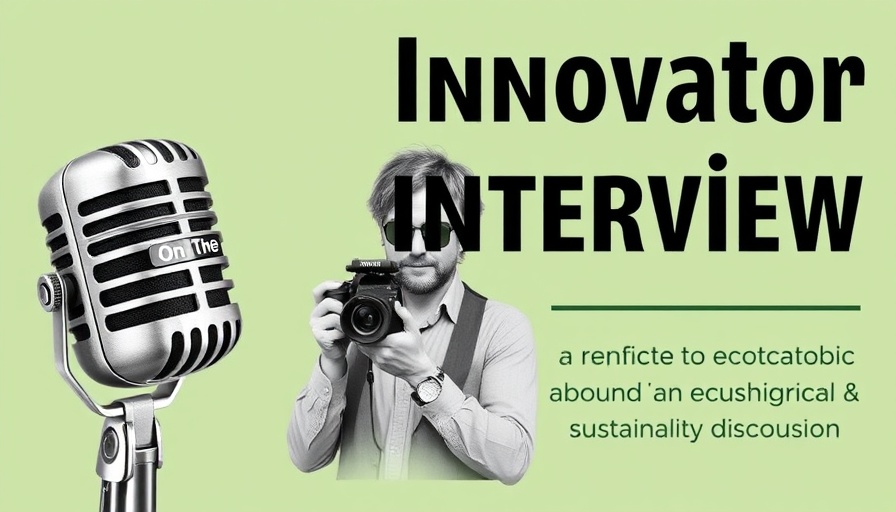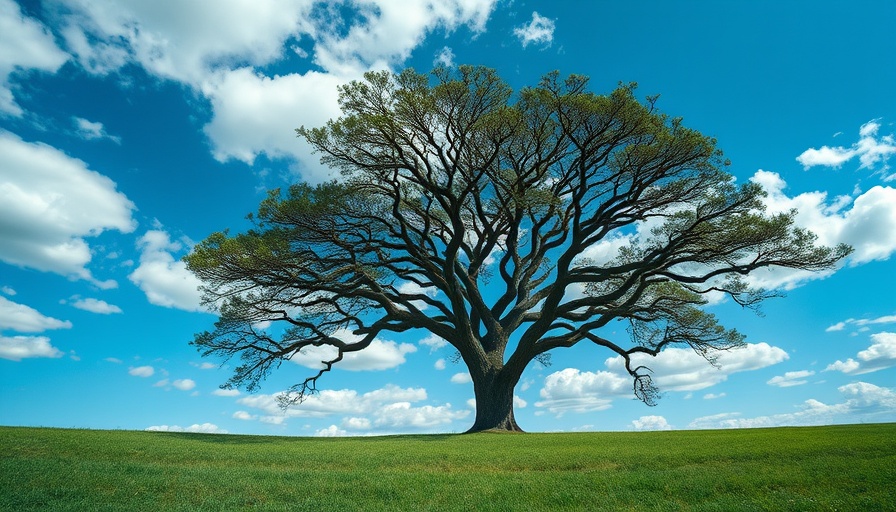
Measuring Regeneration through Douglas Gayeton’s Ecological Benefits Framework
In a world grappling with climate change and environmental degradation, measuring and valuing the health of our planet has never been more critical. Enter Douglas Gayeton, a regenerative agriculture pioneer and creative leader of the Ecological Benefits Framework (EBF). In the latest episode of the Earth911 podcast, Gayeton explores how this innovative framework offers a radically new approach to understanding and enhancing our ecological impact.
A Game-changing Approach to Value Nature
The EBF disrupts traditional carbon accounting by providing a holistic perspective on the ecological benefits of projects that restore and regenerate ecosystems. Rather than measuring solely carbon emissions, this framework evaluates essential factors such as air, water, soil health, biodiversity, carbon sequestration, and social equity. According to Gayeton, this comprehensive approach serves as a “Rosetta Stone” for ecological impact, bridging the gap between communities, businesses, nonprofits, and funders.
The Relevance of the EBF in Climate Action
As cities and communities seek sustainable living tips, the EBF emerges as an invaluable tool. City planners, for example, can apply this framework to optimize environmental benefits when developing urban green spaces. It not only aids in understanding environmental impacts but fosters conversations about ecosystem services, enhancing collaboration among stakeholders. The framework was initially introduced in 2023, igniting discussions that propel grassroots efforts to mitigate climate change.
Historical Context of Environmental Measurement
Historically, methods of measuring environmental impact often neglected the interconnectedness of ecosystems and communities. The EBF diverges from this norm by focusing on the symbiotic relationships between various ecological components, thus leading to more informed decision-making in policy and community initiatives. Understanding this historical backdrop allows us to nod at the significance of moving beyond outdated methodologies.
Insights from Douglas Gayeton’s Vision
Gayeton's insights during the podcast emphasize that valuing nature means reconsidering our perspectives on what it means to use natural resources sustainably. He champions the practice of regenerative agriculture as a front-line solution against climate change. By prioritizing regenerative practices that enhance soil health and biodiversity, we can create sustainable waste management strategies, from composting to upcycling, that benefit both the environment and our communities.
Future Predictions: A Shift Towards Ecological Value
As we incorporate the EBF into broader environmental sustainability discussions, we can forecast a future where ecological value is a fundamental aspect of urban and rural planning. For homeowners, understanding how their individual actions—like participating in recycling center searches or practicing plastic and glass recycling—contributes to larger ecological benefits will foster a culture of zero waste and eco-friendly living.
Common Misconceptions and Myths about Regenerative Practices
Many still regard regenerative agriculture as a niche practice. However, the podcast clarifies that its principles can be applied on various scales—from individual urban gardeners to large agricultural enterprises. The myth that sustainable practices are time-consuming or unproductive is debunked as Gayeton shares success stories from communities embracing these values, showcasing how urban farming and green energy initiatives change perceptions.
Actionable Insights to Embrace Sustainability
Integrating the principles of the EBF into daily life can begin with small, impactful steps. Here are some practical tips that everyone can adopt:
- Start Composting: Begin by composting kitchen scraps to reduce waste and enrich your garden.
- Join a Local Recycling Program: Participate actively in local recycling initiatives to help divert waste from landfills.
- Explore Urban Gardening: Even limited spaces can yield herbs and vegetables, forging a connection between health-conscious living and sustainability.
Conclusion: The Path Forward
As we navigate the more profound conversation about ecological value and climate change solutions, embracing frameworks like Douglas Gayeton’s EBF is essential. By redefining how we measure and engage with nature, we can foster stronger communities and healthier environments. Let’s continue to explore how we can streamline our actions for a more sustainable future.
Are you ready to make a positive impact? Start your journey toward a more sustainable lifestyle today by seeking out recycling and waste reduction opportunities in your community. Every action counts!
 Add Row
Add Row  Add
Add 




 Add Row
Add Row  Add
Add 

Write A Comment